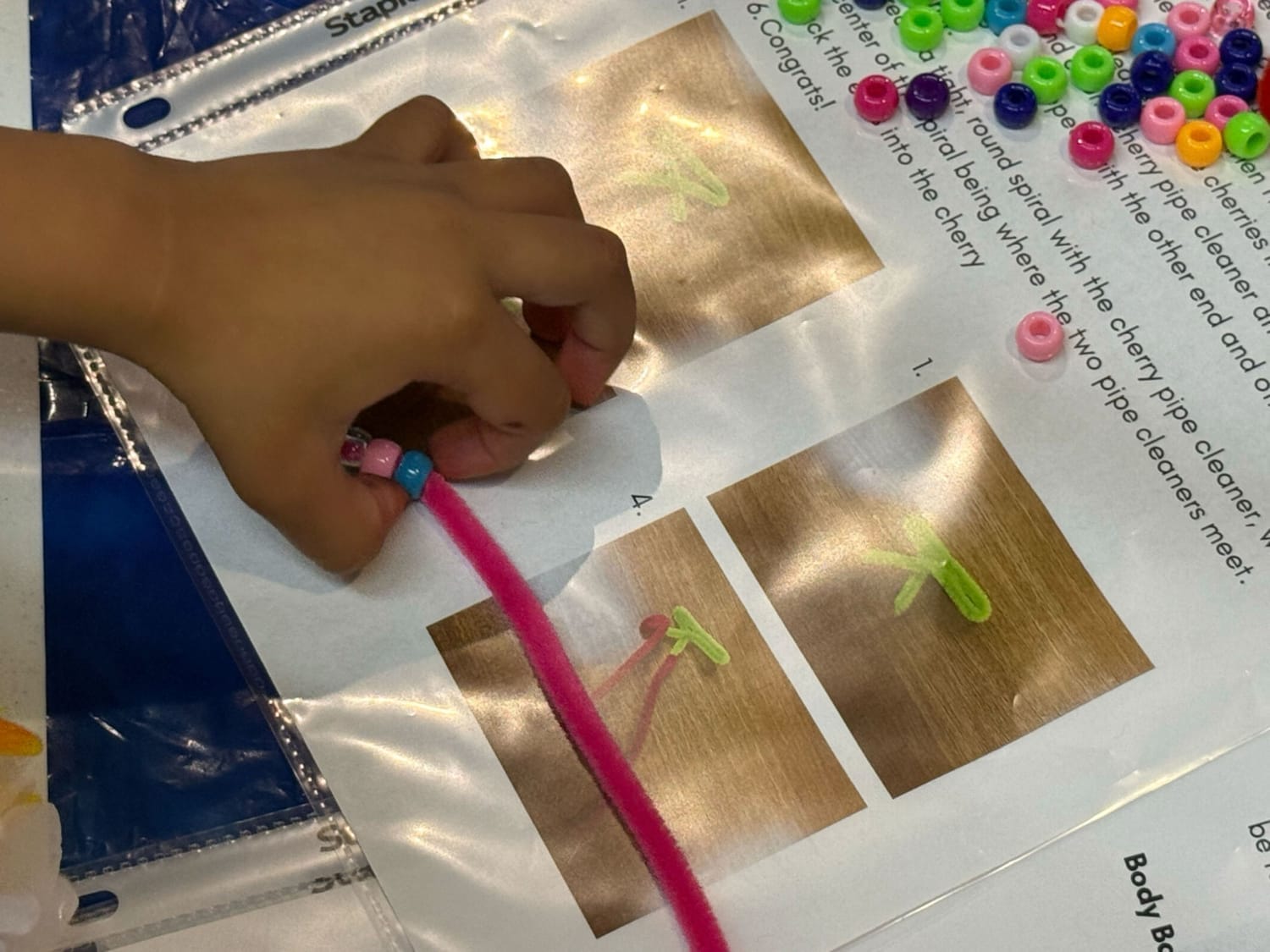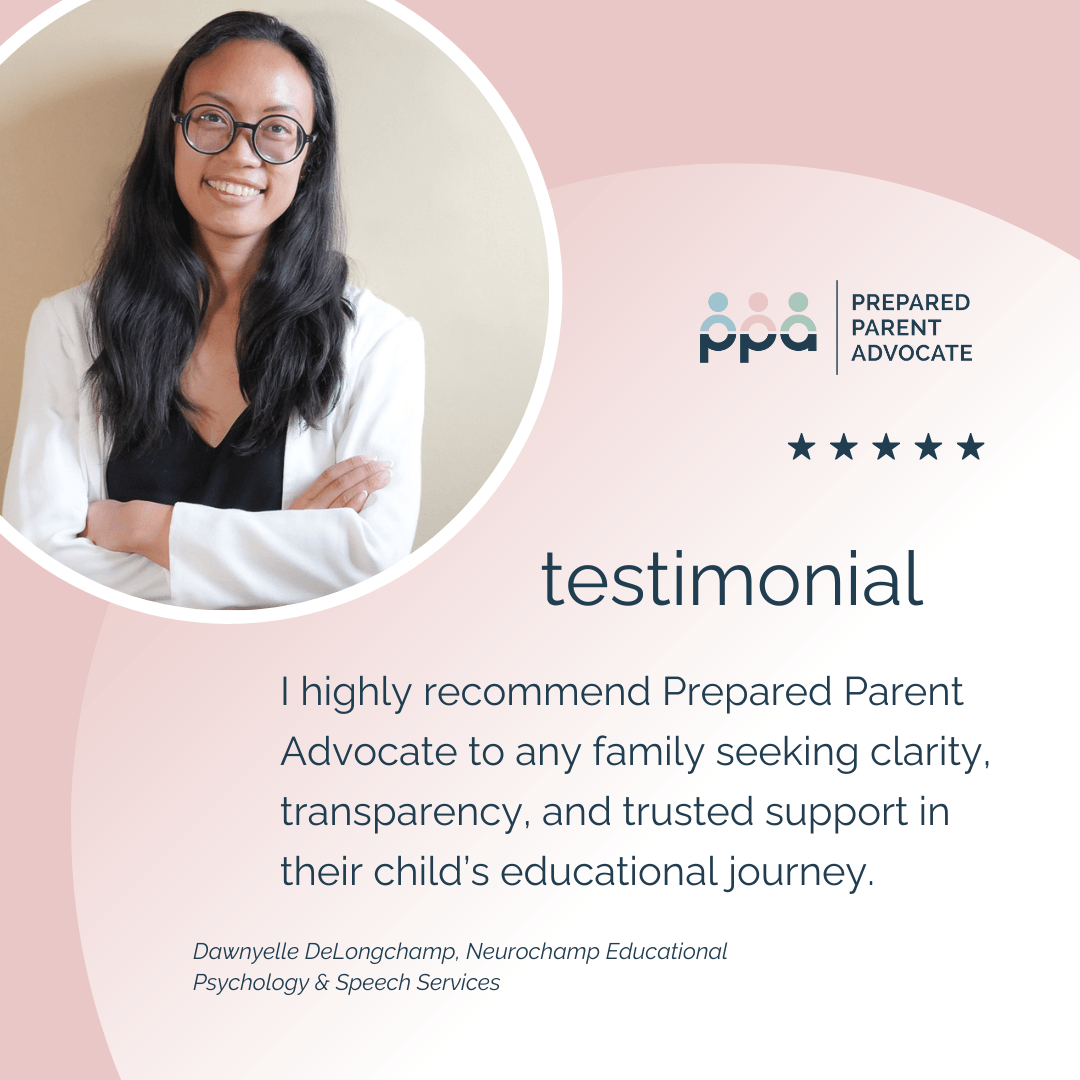Preschool and TK Assessment
Autism Educational Assessments | California Licensed Educational Psychologist
If you're wondering whether your preschooler/TK-age child’s development is on track or trying to figure out if they qualify for early intervention or special education - you're not alone.
I specialize in preschool disability and psycho-educational assessments that are gently, parent-centered, and designed to give you real answers. As both a licensed educational psychologist and a parent, I know how emotional this process can be. My role is to provide a clear, trauma-informed evaluation so you can understand what's going on and what steps to take next.
Whether you're concerned about language, social-emotional growth, behavior, and learning, I'm here to help you make sense of your child's needs and advocate for the support they deserve.
Already received an evaluation from your school district?
If you disagree with the results or believe something was missed, I also offer Independent Educational Evaluations (IEEs) focused on preschool-aged children. These are typically funded by the district when requested appropriately, and I can walk you through the process.

Find out how your child learns and how to support them in the areas they struggle in.
Receive educational diagnoses that may open doors for school accommodations and other supports.
Have a partner who can guide you toward additional supports and recommendation after the evaluation is complete.

Frequently Asked Questions
I can help you understand whether your child may meet California's eligibility criteria for special education based on my private assessment and knowledge of Ed Code. I also consider diagnostic frameworks like the DSM-TR as part of my assessment process, especially when evaluating areas like social-emotional development, attention, or autism-related traits.
However, my role is focused on educational needs and how those may impact a child's ability to learn or access school. Some services - like standalone medical diagnosis, treatment plans or recommendations for therapies such as ABA - require a medical provider or clinical psychologist.
While I do not make formal eligibility determinations (only the school district can do that), my role is to provide clear, comprehensive information about your child's strengths, challenges, and how those needs may impact their ability to learn.
Many families use this information to feel more prepared when approaching the school for assessments or IEP discussions. I also guide parents on what to expect from the school process and how to advocate effectively.
If you've gone through the school's assessment process and you disagree with the results - whether your child was found ineligible for special education, or you feel the evaluation didn't fully capture your child's needs - you have the right to request an Independent Educational Evaluation (IEE) at the district's expense.
An IEE is a private, outside assessment conducted by a qualified professional who is not part of the school district. As a Licensed Educational Psychologist (#4660), I can provide IEEs that assess your child's learning, development, and areas of concern through an independent lens.
Families often pursue an IEE when:
-They believe the school's evaluation missed key concerns
-They feel their child's challenges were overlooked or minimized
-They want a second opinion to better understand their child's needs
If you're unsure whether an IEE is the right next step, I'm happy to provide a consultation to help you explore your options.
For educational testing purposes, I currently specialize in preschool age children (ages 2.6-5 years old).
I offer comprehensive psycho-educational evaluations designed for preschool-aged children. Here’s what you can expect:
Connect & Understand – We start with a conversation about your concerns and provide guidance on how to best support your child.
Assessment – I gather a full picture of your child through parent and teacher interviews, observations, rating scales, and play-based, evidence-based testing. You’ll be with your child throughout the process to help them feel at ease.
Results & Clarity – Within two weeks of testing, you’ll receive a detailed, easy-to-understand report. We’ll review everything together and make sure all your questions are answered.
Next Steps – You'll receive clear, personalized recommendations, including referrals to trusted community providers, so you can confidently take the next steps in supporting your child.
You don’t have to figure this out alone—reach out to get started.
To truly understand your child’s needs, I take a gentle, thoughtful approach. The length of time varies depending on assessments used. A ball park estimate typically includes:
A 1-hour in-depth interview with you, the parent(s), to learn more about your child’s history, strengths, and challenges—without your child present, so we can talk openly. This will be scheduled separately, over the phone or virtual setting.
A 1-hour observation of your child in a natural setting, like a park or play area, where they feel most comfortable.
A 1-2 hours direct assessment with your child, using engaging, evidence-based activities designed to help them feel safe and supported.
Each step is paced with care and compassion, so we can get the best understanding of your child in a way that feels respectful and reassuring.
I understand how important it is to find a time that works for both you and your child. That’s why I offer weekend and evening appointments, by scheduling in advance. I’ll work closely with you to choose a time that minimizes time away from school and fits your child’s needs—so they can feel comfortable and supported.
A Licensed Educational Psychologist (LEP) is a specialist trained to understand how children learn and behave in school. They are qualified to assess and diagnose learning, emotional, and behavioral challenges that may affect a child’s education. LEPs also know the special education system well, so they can help families understand their rights and what support their child may be able to get in public schools.
Monica Trost is a License Educational Psychologist. Her license number is 4660, under the Board of Behavioral Sciences (BBS).
No referral is needed. If you have concerns about your child’s development or learning, you can reach out directly. I’m here to help you take the next step—no extra hoops, just support when you need it.
I believe in being upfront about costs, so you can make an informed decision before scheduling a consultation. My services are designed to provide clarity, peace of mind, and guidance that can save families significant time, stress, and uncertainty during the special education process.
Current Fees:
Total fee is $3,500, paid in four parts - with each stage billed at the time it is scheduled. Services must be completed in order and within a year since the start of the evaluation process (parent intake interview). No long-term payment plans are offered at this time.
Evaluation Includes:
Parent Intake Interview - $500
Review of concerns, developmental history, and goals for evaluation.
$500 is due at the time this session is scheduled.
Observation - $1,250
Includes in-person observation(s) in a natural setting (for example, at a park or library)
$1,250 is due at the time this stage is scheduled.
Direct Assessment and Rating Scales - $1,250
Includes one-on-one testing sessions with your child using standardized cognitive, academic, and/or processing measures. This stage also includes parent and teacher behavioral rating scales to gather additional insights (for example, attention, executive functioning, social-emotional, autism, or/and adaptive skills).
$1,250 is due at the time this stage is scheduled. Rating scales must be completed by caregivers and teachers before the evaluation can move forward. This helps ensure accurate results and personalized recommendations.
Report Writing and Feedback Session - $500
Includes detailed scoring and analysis, a comprehensive written report with individualized recommendations, and a 60-minute virtual feedback meeting to walk through the results and next steps.
$500 is due at the time the feedback session is scheduled. The written report is provided at the time of the feedback meeting.
Independent Educational Evaluation (IEE) - at district expense
Assessment includes Cognitive, Social/Emotional, Behavior, Academic, Adaptive (if relevant), observations, comprehensive record review, interviews, report, recommendations and summary meeting with parent and with IEP team. *Will comply with district requirements.
Fees are subject to change; all costs are confirmed before services begin.
Great question! Psychological educational evaluations are typically not covered by insurance, regardless of the provider. I am a private-pay provider and am not in-network with any insurance plans. For certain assessment services, I can provide a superbill upon request. Please note that educational advocacy and consultation services are typically not eligible for reimbursement. If you'd like to explore reimbursement options for an evaluation, I recommend contacting your insurance provider in advance to ask about coverage for out-of-network psychological assessment. Prepared Parent Advocate cannot guarantee reimbursement for any services, even when a superbill is provided.
Monica Trost
Prepared Parent Advocate
Licensed Educational Psychologist #4660
1460 Maria Ln #300, Walnut Creek, CA 94596
(707) 435-3798


